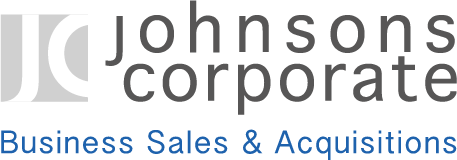When a business is sold, it is usually one of two types of transaction: an asset sale or a share sale. This article looks at the pros and cons of each.

What is an asset sale?
An asset sale is where the assets of the business are sold, while the seller retains ownership of the business entity and company structure. Assets can include plant, equipment, inventory, property, company name, intellectual property and goodwill.
What is a share sale?
A share sale is where the buyer purchases shares in a business’s legal entity, rather than just the assets. In a share sale the acquirer may purchase anywhere from a minority shareholding to a majority or controlling interest to 100% of an entity. Generally speaking, acquisitions through share sales are more complex and involve greater risk than asset sales and therefore require greater due diligence (DD) by the purchaser to make sure the business is ‘clean’.
Which is right for you?
Ultimately, commercial, legal and tax considerations will determine whether a transaction is structured as an asset sale or share sale. Each type of sale has advantages and disadvantages, and the type of sale you opt for will be influenced by whether you are buying or selling.
Asset sale pros and cons for buyers
Asset sales generally pose a lower risk to buyers, as they are only purchasing the company’s assets and not the business legal entity, which may have unknown encumbrances associated with it. These could include contingent liabilities such as product liability, contract disputes, employee lawsuits or issues with product warranties.
On the downside, employee contracts are not transferable in an asset sale and must be re-negotiated with the new owner and entitlements factored in, all of which can affect the selling price.
Contracts with suppliers and customers as well as special licenses and permits may also not be transferable, and the consent of third parties may be required, which can also affect the sale price.
Certain assets can also be harder to transfer due to issues of assignability, legal ownership, and third party consents. Such assets could include certain kinds of intellectual property, leases, permits and contracts; all of which can slow down the sale and increase costs for the buyer.
Asset sale pros and cons for sellers
Asset sales can be advantageous for sellers in that they can stipulate the assets they wish to sell and retain ownership of those they do not (i.e. they may wish to retain certain assets such as their cars or items of equipment).
However from a taxation point of view, they may wish to sell all of their assets as if this qualifies them for the sale of what is known as a ‘going concern’, then they may not be liable to pay GST on the sale.
One possible disadvantage of asset sales for sellers is that they may be subject to Stamp Duty, which is generally higher on the sale of assets than on shares.
Share sale pros and cons for buyers
One of the main advantages for buyers in share sales is the fact that they assume full control of the business and the transaction is usually smoother than an asset sale. This is because all contracts with suppliers and customers remain intact and as far as the outside world is concerned, the only thing that has changed is ownership of the business.
Continuity is also maintained with the company’s employees, as terms and conditions of employment remain unchanged with the new ownership.
The main downside of share sales for buyers is the increased risk they are exposed to, because they stand to inherit every element of the business, including any unknown legal, tax or other liabilities the seller may have.
The increased due diligence required to identify these possible encumbrances can also increase the cost of the transaction for the buyer.
Share sale pros and cons for sellers
The main advantage of share sales for sellers is that all of their potential liabilities are re-assigned to the buyer and they can make a clean break from the business
On the downside, because of the potential encumbrances the buyer is taking on, they may require more stringent warranties and indemnities from the seller.
Whichever type of sale structure you opt for as a buyer or seller, it is vital to get the right accounting, taxation and legal advice before committing yourself to a sale. If the size of a transaction exceeds $1 million, then hiring an independent business broker would be a wise decision.
> LEARN ABOUT JOHNSONS’ APPROACH TO MID-MARKET BUSINESS SALES
